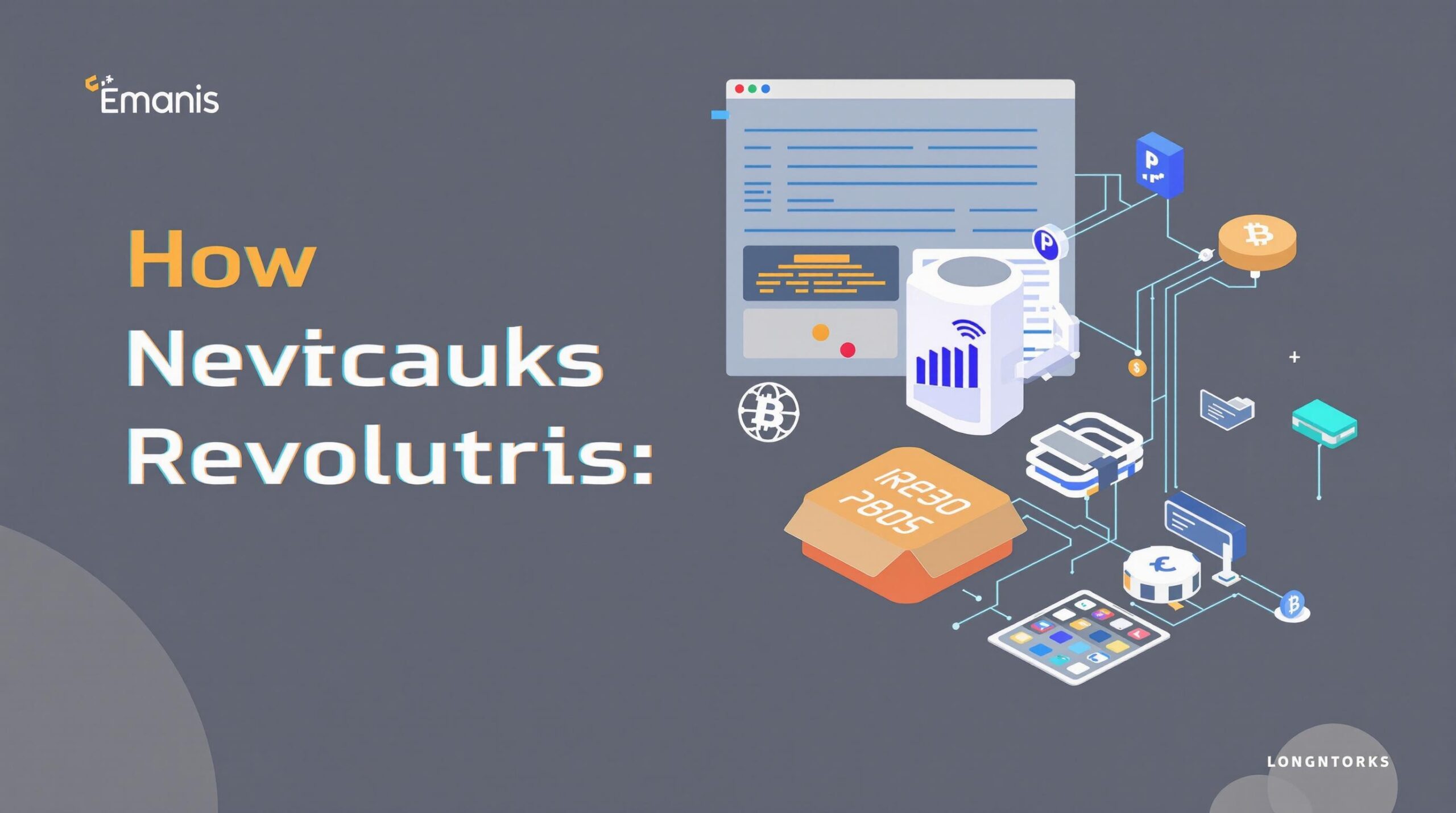Introduction to Smart Contracts in Business Automation
Have you ever wondered how businesses can operate more smoothly and efficiently without the constant need for manual oversight? Enter the world of smart contracts, an innovation born from the capabilities of blockchain technology. At its core, a smart contract is a self-executing contract with the terms of the agreement directly written into lines of code. This ingenious concept is drastically transforming how businesses function by offering a way to automate complex transactions, reduce costs, and enhance transparency.
What is a smart contract? A smart contract is a self-executing agreement where the terms are written into computer code, enabling automatic and transparent transactions on a blockchain network.
In Africa, a continent ripe with technological advancements and opportunities, smart contracts are paving the way for revolutionary changes. With smart contracts, businesses can now streamline operations like never before through trustworthy, automated processes. Imagine a world where transactions execute seamlessly without third-party intervention—this is the potential that smart contracts bring to the business landscape. By removing intermediaries, businesses not only save on significant costs but also speed up processes that would typically be bogged down by bureaucratic inefficiencies.
Smart contracts also bring a level of transparency that traditional agreements often lack. Every action and transaction carried out under a smart contract is recorded on the blockchain, an immutable digital ledger. This means enhanced security and trustworthiness in business dealings, which is crucial for all stakeholders involved.
According to industry experts, implementing smart contracts can reduce transaction costs by up to 90%, offering a significant financial incentive for businesses to adopt this technology.
Industries across the globe are already recognizing these benefits and are quickly adapting their models to incorporate smart contracts. From finance and real estate to supply chain management, the impact is widespread and profound. The Jara ecosystem is at the forefront of this digital transformation, using smart contracts to facilitate tokenized real-world assets and empower a new era of financial inclusion in Africa. This platform offers a seamless, socially integrated wallet and proprietary L2 blockchain, making access to the financial ecosystem user-friendly and efficient.
By leveraging the power of smart contracts, businesses not only become more efficient but also partake in shaping a more equitable and transparent economic landscape. The Jara platform, with its $JARA token, serves as a gateway for international capital to engage with African markets, bridging the gap between traditional business operations and modern, automated solutions. This is truly the future of business automation, and smart contracts are leading the charge.
Key Features of Smart Contracts Revolutionizing Business
Smart contracts are rapidly transforming the landscape of business automation by offering key features that bring efficiency and transparency to operations. One of the standout features of smart contracts is automated execution. Imagine not needing any manual intervention to execute agreements – that’s the power of smart contracts. These contracts are programmed with predefined rules, ensuring that once conditions are met, actions are carried out without any delays.
What is automated execution in smart contracts? Automated execution is a feature in smart contracts where transactions are automatically carried out when predefined conditions are met, eliminating the need for intermediaries.
Furthermore, immutability stands as another critical feature. Once a contract has been coded and deployed on a blockchain, it cannot be altered. This ensures that the terms of the agreement remain unchanged, providing a trustworthy framework for business operations.
Why is immutability important in smart contracts? Immutability ensures that once a smart contract is deployed, its terms cannot be modified, which enhances security and trust in the agreement.
By leveraging these features, businesses can streamline their operations and enhance security. The automation eliminates human error and reduces costs associated with manual processing. Plus, the elimination of intermediaries through direct execution leads to significant cost savings. But how does this actually affect a business in real terms?
- Reduced Costs: By automating processes, businesses can lower operational costs and improve efficiency.
- Increased Security: The immutable nature of smart contracts provides a secure environment for sensitive data and transactions.
- Enhanced Trust: With direct execution on a blockchain, the need for middlemen is minimized, creating a more trustworthy atmosphere between parties.
For African enterprises, this revolution holds particular promise due to the unique challenges of the continent. Efficient financial services accessible through platforms like Jara can fuel economic transformation. Jara’s ecosystem, with its $JARA token, facilitates access to a thriving market, enabling businesses to invest in infrastructure projects like the Lagos airport tokenization, thus unlocking unprecedented opportunities.
The transparency these contracts provide can improve supply chain operations significantly. By automating transactions, businesses in the supply chain can track their products with increased accuracy, reducing the risk of fraud and error. This can be particularly advantageous in ensuring compliance and trust in industries continually disrupted by emerging technologies.
Discover how smart contracts are integrated with AI to push the boundaries even further, transforming an industry that thrives on precision and efficiency.
With these features at their disposal, businesses can navigate the complexities of modern finance while being well-positioned to capitalize on Africa’s burgeoning digital asset economy. In such a space, companies like Jara are not just adopting the technology but are leading the charge towards a digital future.

Impacts of Smart Contracts on Traditional Business Models
Transforming Operations with Blockchain
As the world embraces technological advancements, the role of smart contracts in automation steadily grows, reshaping traditional business models. Imagine a world where operations are streamlined, costs reduced, and trustworthiness enhanced – all thanks to this ingenious application of blockchain technology.
At the heart of this transformation is the shift from conventional, manual processes to blockchain-enabled systems. Smart contracts operate on a decentralized network, allowing businesses to automate workflows without the need for intermediaries. This change not only speeds up processes but also reduces human error and associated costs. What could be more appealing than a system that ensures seamless transactions while maintaining complete transparency?
What are smart contracts in business? Smart contracts are self-executing contracts with the terms of the agreement directly written into code, providing efficiency, security, and speed in business transactions.
The use of smart contracts brings a new dynamic to business workflows and relationships. Gone are the days when physical meetings and mounds of paperwork were necessary to close deals. With blockchain, agreements are executed automatically when predetermined conditions are met, empowering businesses to focus on strategic growth rather than administrative tasks.
Think about the relationships formed with this approach. They are more collaborative, with all parties having access to real-time updates and contract statuses. This transparency builds trust, which is crucial for forging lasting partnerships. Furthermore, businesses large and small can reap the benefits: from giant conglomerates to budding startups, everyone stands to gain from this enhanced efficiency.
Take, for instance, the process of supply chain management. Traditionally fraught with complexities and prone to fraud, the supply chain is an area greatly enhanced by the use of smart contracts. Now, every step of the process can be recorded and verified on the blockchain, ensuring accountability and minimizing risk.
Moreover, the use of blockchain in business goes beyond operational efficiency. It brings a new level of resilience to traditional business models. With data immutability and security at its core, blockchain provides a reliable environment where contracts are executed without tampering, ensuring that businesses can function smoothly even in uncertain times.
As blockchain technology continues to evolve, it opens up exciting new possibilities for business automation. Companies are realizing the value of integrating this technology into their core operations to maintain a competitive edge. The impact of smart contracts is profound, signaling the dawn of a new era where the old ways are swiftly becoming obsolete.
In the African market, for instance, where financial services are rapidly evolving, Jara is leading the charge. By bridging global capital to local opportunities, Jara is driving transformation through its smart contract applications, allowing investors to tap into Africa’s burgeoning digital asset economy with confidence and security.
Therefore, it is apparent that the advent of smart contracts not only transforms how businesses operate but also revolutionizes the way they interact and thrive in a connected world. Can you imagine the potential when this technology is fully embraced across all sectors?
Future of Business Automation with Smart Contracts
Imagine a world where businesses operate like well-oiled machines, effortlessly executing tasks and transactions with minimal human intervention. This is the future that smart contracts are making possible. In the rapidly evolving landscape of business automation, smart contracts stand out as game changers, offering a glimpse into a more efficient and seamless tomorrow.
Emerging Trends in Smart Contract Technology
As we delve into the future, several trends are shaping how smart contracts revolutionize business processes:
- Integration with IoT: Internet of Things (IoT) devices are increasingly being paired with smart contracts to automate physical tasks. For instance, a refrigerator could automatically reorder food supplies when stocks are low, facilitated by a smart contract.
- Scalability Improvements: Blockchain networks like Ethereum and Solana are working on scalability solutions to handle more transactions per second, making it easier for businesses to integrate smart contracts into their operations.
- Increased Adoption in Various Industries: From healthcare to real estate, industries are experimenting with smart contracts to streamline processes and reduce administrative overhead.
Smart contracts are self-executing contracts with the terms of the agreement directly written into lines of code.
These trends indicate a bright future for smart contracts in business automation, potentially transforming how industries operate and interact globally.
Technological Innovations Boosting Adoption
Several technological advancements are paving the way for widespread smart contract adoption:
- Interoperability: The ability of different blockchain networks to interact seamlessly enhances smart contract functionality across platforms.
- Security Enhancements: As security remains a top priority, innovations in cryptography and security audits ensure that smart contracts are as bulletproof as possible.
- Artificial Intelligence and Machine Learning: By integrating with AI, smart contracts can learn from past transactions, potentially predicting and automating future behavior for even greater efficiency.
These innovations are crucial in addressing many of the challenges currently facing smart contract deployment in large-scale business environments.
Continuing Evolution of Automated Systems
The evolution of automated systems is not just a theoretical future; it’s happening now. Businesses worldwide are exploring ways to leverage smart contracts to enhance automation. Here are some notable instances:
- E-commerce Platforms: These platforms are using smart contracts to secure payment transactions and partnerships with suppliers.
- Supply Chain Management: Smart contracts provide transparency and efficiency by automatically managing logistics and inventory tracking.
- Decentralized Finance (DeFi): Various financial services, such as lending and trading, have been revolutionized through smart contracts, eliminating the need for intermediaries.
In Africa, smart contracts are poised to leapfrog traditional infrastructure, supporting [Africa’s growing industries](https://example.com/top-smart-contract-use-cases-in-africa) and creating unprecedented opportunities for digital transformation.
In conclusion, the future of business automation is tightly linked with the ongoing advancements in smart contracts. The continued development and declining costs of implementing these technologies highlight a landscape filled with potential and opportunities. As industries adapt and evolve, smart contracts will remain at the forefront, driving efficiency, transparency, and innovation in business processes globally.

How do smart contracts work in business automation?
Smart contracts in business automation work by executing agreed-upon terms automatically when certain conditions are met. These contracts, built on blockchain technology, eliminate the need for intermediaries, ensuring speed and transparency in business transactions.
Are smart contracts legally binding?
Are smart contracts legally binding? Yes, smart contracts can be legally binding if they fulfill the legal requirements of a contract, including offer, acceptance, and consideration. However, the enforceability can vary depending on jurisdiction.
What are the challenges of implementing smart contracts?
Implementing smart contracts presents several challenges:
- Technical Complexity: Developing and deploying smart contracts requires technical expertise in blockchain.
- Legal Ambiguities: Legal recognition of these contracts can vary across different regions.
- Security Risks: Vulnerabilities in the contract code can lead to exploitations.
These challenges must be addressed to fully realize their potential benefits.
How do smart contracts improve supply chain transparency?
Smart contracts enhance supply chain transparency by providing a tamper-proof record of transactions and movements of goods. With their blockchain foundation, they allow all stakeholders to access consistent, reliable data, which minimizes disputes and enhances efficiency throughout the supply chain.

Related Case Types and Practice Areas
Explore other related areas and pages that complement the topic of smart contracts revolutionizing business automation.
Hear From Our Satisfied Clients
At the forefront of our Smart Contracts & Automation practice is a deep-seated commitment to client satisfaction. Each case is handled with utmost care, as echoed in the appreciative feedback from those we represent.

Take Action: Transform Your Business with Smart Contracts
Ready to embrace the future of business automation? At Jara, we specialize in harnessing the power of smart contracts to streamline operations, enhance security, and propel your business forward. Whether you’re looking to implement blockchain technology or optimize your current processes, our expert team is here to assist you every step of the way.
“Your Vision, Our Expertise” – Partner with us for over a decade of proven excellence in smart contract solutions.
Don’t wait to redefine success in the digital age. Contact us today to explore how we can revolutionize your business operations together. For more insights into smart contracts and automation, download the Jara app on Android or iPhone and discover more about the future of business automation.
Chinyere “Chi” Nnadi Bio
Founder and CEO, Jara | Business Automation Specialist
Content Reviewed by Chi Nnadi and his Content Team. Chi is an experienced entrepreneur dedicated to transforming Africa’s financial ecosystem through blockchain technology. As Founder and CEO of Jara, he builds enterprise-grade infrastructure converting illiquid African assets into globally accessible digital tokens. With his proprietary Layer-2 blockchain technology, Chi bridges the gap between global investors and Africa’s growing digital asset market.

















